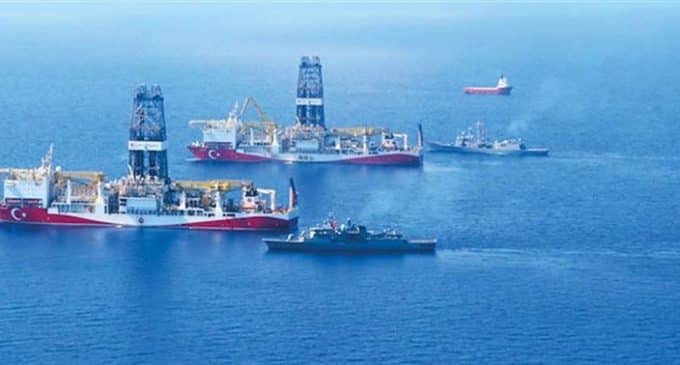9178
0
The U.S. Made a Statement About the Eastern Mediterranean
The U.S. made a statement about the Eastern Mediterranean. The US State Department expressed satisfaction with the dialogue initiatives.

Yazar: Eylem Özer
Yayınlanma: 26 Eylül 2020 17:43
Güncellenme: 24 Şubat 2026 03:30
The U.S. Made a Statement About the Eastern Mediterranean
The U.S. made a statement about the Eastern Mediterranean. The US State Department expressed satisfaction with the dialogue initiatives.
Anonymous officials answered the questions of press by teleconference about the US Secretary of State Mike Pompeo's visit to Greece.
Explaining the USA's role in the tension between Turkey and Greece that involved the Eastern Mediterranean officials said they were worried about growing geopolitical tensions over the islands but they were satisfied with the dialogue held recently.
The US State Department official said:
“Announcement of resumption in exploratory talks between Greece and Turkey are welcomed on September 22nd. Verily provide both NATO ally Turkey and Greece are terminating the conflict and the subsequent establishment of dialogue is very important because it reduces the possibility of any accident or incident. Therefore, we continue to encourage Greece and Turkey to reach an agreement as to an ideal progress on this issue.”
Reminding that Pompeo will visit Greece to improve cooperation between the two countries, the official stated that joint work in the military, economic and energy sector will be discussed at the meeting.
Stating that ensuring security in the Eastern Mediterranean will benefit Greece as well as Turkey, the ministry official said:
“This will benefit Greece and Turkey as well as all of our allies in the Euro-Atlantic area. Regional security is also among NATO's priorities. Therefore, we will continue to be in the region and look forward to solution-oriented opportunities.”
“We Invite You to Solve Problems Peacefully”
In addition to the Eastern Mediterranean issue, the official who answered the question about the Seville Map that Greece had commissioned by the Spanish University of Seville in 2011-2012 said:
“The USA shares the European Union's (EU) view that the Seville Map has no legal significance. We invite all states to resolve their maritime jurisdiction issues peacefully and in accordance with international law. We do not take any side on maritime border issues or how states in general should limit their maritime borders. Therefore, we encourage all parties to engage in dialogue, to use institutional structures, to turn to diplomacy to solve these problems, and to avoid unilateral steps that increase tension and the risk of accidents.”
İLGİLİ HABERLER





European stocks soared and focus shifted to German retail sales after Powell's speech!

Forex Signal For TRY/USD: Inflation Slowdown in November.

Forex Signal For GBP/USD: Bullish Trend Still Not Breaking While Recovery Continues.

Forex Signal For EUR/USD: Starry US Data Points to Higher Fed Increases.

Forex Signal For BTC/USD: Downside Continues as Bitcoin Recovery Moves Less.
En Popüler Haberler
Yorum Yap
Yorumlar
Henüz yorum yapan yok! İlk yorumu siz yapın...